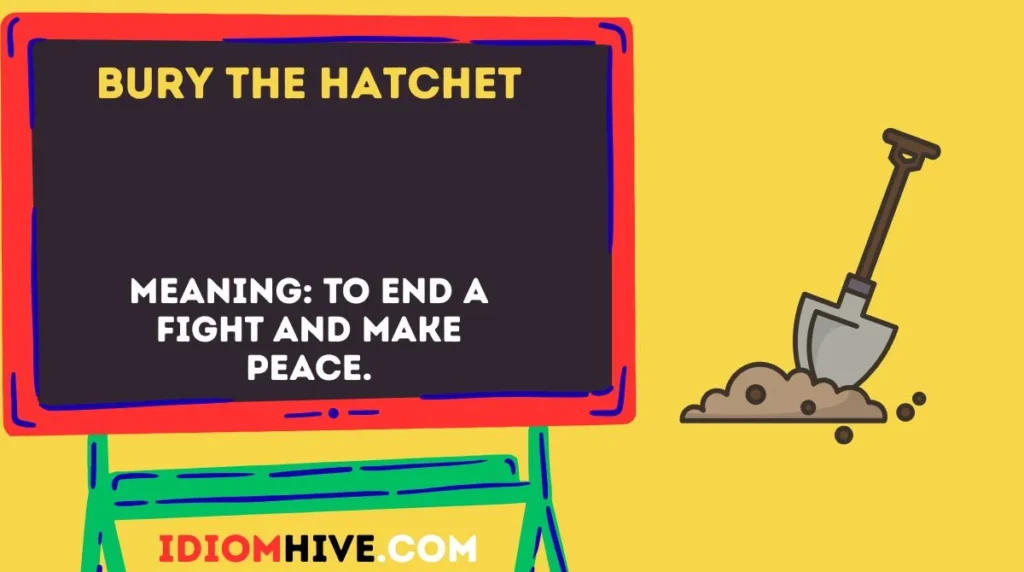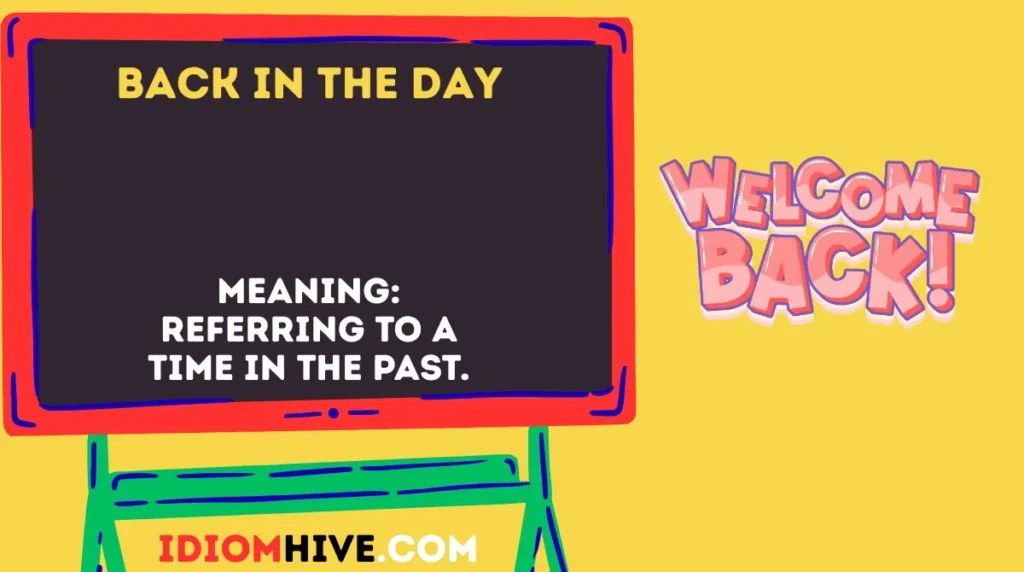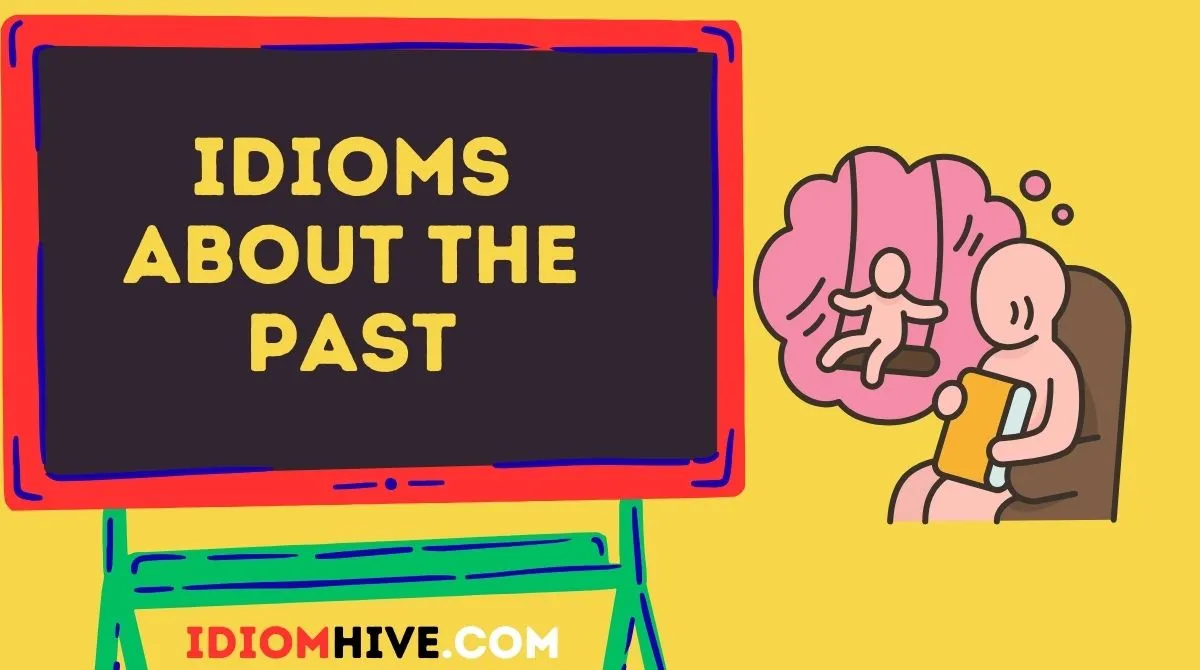Language is much more than vocabulary and grammar—it’s a window into culture and history. One of the most colorful features of English is idioms.
These are phrases whose meanings go beyond the literal words, often drawing from stories, traditions, and shared experiences. Idioms make communication richer, more expressive, and more memorable.
When it comes to the past, idioms are especially powerful. They allow us to reflect on old memories, past mistakes, history, or things that are gone forever.
Whether you’re describing childhood, old traditions, or something outdated, idioms about the past give depth and emotion to your words.
By learning idioms related to the past, you can sound more natural in conversations, better understand English literature, and bring personality to your speaking and writing.
From “water under the bridge” to “once upon a time,” these idioms help us connect with stories and experiences that shaped who we are today.
Did You Know?
Many idioms about the past come from ancient literature, folklore, and even seafaring traditions. For example, “water under the bridge” was first recorded in the 1800s in England, showing how people used rivers as a metaphor for time flowing away. This proves that idioms are not just language tools—they are living pieces of history!
Idioms About Forgetting or Moving On
Water under the bridge
Meaning: Past problems that are forgiven or no longer important.
Example: “Yes, we argued last year, but that’s water under the bridge now.”
Similar Idiom: Let bygones be bygones
Note: Common in both formal and informal situations to dismiss old conflicts.
Let bygones be bygones
Meaning: Forget past disagreements and move forward.
Example: “They finally let bygones be bygones and became friends again.”
Similar Idiom: Bury the hatchet
Note: Often used in everyday conversations about reconciliation.
Bury the hatchet

Meaning: To end a fight and make peace.
Example: “After years of rivalry, the two leaders buried the hatchet.”
Similar Idiom: Make peace
Note: Informal but can also appear in business or diplomatic contexts.
Don’t cry over spilled milk
Meaning: Don’t waste time being upset about something that cannot be changed.
Example: “You lost the game, but don’t cry over spilled milk.”
Similar Idiom: No use crying over it
Note: Common in motivational talks and daily advice.
Ancient history
Meaning: Something that happened a long time ago and doesn’t matter now.
Example: “That’s ancient history; we don’t need to discuss it anymore.”
Similar Idiom: Water under the bridge
Note: Very casual; used when dismissing irrelevant old matters.
Out of sight, out of mind
Meaning: When you don’t see something, you eventually forget about it.
Example: “After moving away, he became out of sight, out of mind.”
Similar Idiom: Forgotten in time
Note: Common in both personal and professional settings.
Idioms About Nostalgia and Memories
Once upon a time
Meaning: Long ago; often used when telling a story.
Example: “Once upon a time, I lived in a small village.”
Similar Idiom: In the old days
Note: Popular in storytelling and casual reminiscence.
A blast from the past
Meaning: Something that suddenly brings back old memories.
Example: “Hearing that song was a real blast from the past.”
Similar Idiom: Walk down memory lane
Note: Informal, often used with music, photos, or old friends.
Walk down memory lane
Meaning: To think about or revisit past experiences.
Example: “Looking at my childhood photos was a walk down memory lane.”
Similar Idiom: Reminisce
Note: Used in both casual talk and personal writing.
In the good old days
Meaning: Refers to the past, usually with nostalgia.
Example: “In the good old days, children played outside all day.”
Similar Idiom: Back in the day
Note: Often used by older people reminiscing about their youth.
Back in the day

Meaning: Referring to a time in the past.
Example: “Back in the day, we didn’t have smartphones.”
Similar Idiom: The good old days
Note: Informal and common in everyday speech.
Time of your life
Meaning: A very enjoyable or memorable moment in the past.
Example: “College was the time of my life.”
Similar Idiom: Golden years
Note: Frequently used in personal reflections.
Rose-colored glasses
Meaning: Seeing the past as better than it actually was.
Example: “He looks at his childhood through rose-colored glasses.”
Similar Idiom: Nostalgic view
Note: Semi-formal; often used in discussions about memory and perception.
To stand the test of time
Meaning: Something from the past that remains valuable.
Example: “Shakespeare’s plays have stood the test of time.”
Similar Idiom: Evergreen classic
Note: Used in cultural, artistic, or historical discussions.
Idioms About Mistakes and Lessons from the Past
Hindsight is 20/20
Meaning: It’s easy to see mistakes clearly after they happen.
Example: “I should’ve invested earlier, but hindsight is 20/20.”
Similar Idiom: Looking back, it’s clear
Note: Common in reflective discussions.
Learn from the past
Meaning: Use past mistakes to avoid repeating them.
Example: “We must learn from the past to improve our future.”
Similar Idiom: History repeats itself
Note: Often formal or motivational.
History repeats itself
Meaning: Events from the past tend to happen again.
Example: “Economic crises show that history repeats itself.”
Similar Idiom: Learn from history
Note: Used in academic, political, and general discussions.
Skeletons in the closet
Meaning: Hidden secrets from the past.
Example: “The politician had many skeletons in the closet.”
Similar Idiom: Dark past
Note: Semi-formal, often in news or gossip.
Dig up the past

Meaning: To bring up old issues that should be forgotten.
Example: “Stop digging up the past during every argument.”
Similar Idiom: Open old wounds
Note: Common in daily life arguments.
Living in the past
Meaning: Not moving on from old memories.
Example: “He’s still living in the past and can’t accept change.”
Similar Idiom: Stuck in old ways
Note: Often used critically in personal conversations.
Past comes back to haunt you
Meaning: Past mistakes causing problems in the present.
Example: “His lies came back to haunt him during the trial.”
Similar Idiom: Face the consequences
Note: Common in serious or cautionary contexts.
To turn back the clock
Meaning: Wishing to return to an earlier time.
Example: “If I could turn back the clock, I’d spend more time with family.”
Similar Idiom: Go back in time
Note: Often emotional or reflective.
Open old wounds
Meaning: To remind someone of painful past experiences.
Example: “Talking about her failure only opened old wounds.”
Similar Idiom: Dig up the past
Note: Informal, emotional contexts.
Idioms About History and Tradition
A thing of the past
Meaning: Something outdated or no longer in use.
Example: “DVDs are a thing of the past.”
Similar Idiom: Out of fashion
Note: Used in modern vs. old comparisons.
Old habits die hard
Meaning: It’s difficult to stop doing things learned long ago.
Example: “He still smokes because old habits die hard.”
Similar Idiom: Hard to break
Note: Very common in casual talk.
Yesterday’s news
Meaning: Something no longer important or relevant.
Example: “That scandal is yesterday’s news now.”
Similar Idiom: Outdated
Note: Common in media and daily speech.
Dated

Meaning: Old-fashioned, belonging to the past.
Example: “His clothes look dated.”
Similar Idiom: Behind the times
Note: Informal, fashion or style-related.
Behind the times
Meaning: Old-fashioned or not keeping up with trends.
Example: “My grandpa is behind the times with technology.”
Similar Idiom: Out of touch
Note: Informal everyday phrase.
Golden oldie
Meaning: Something old but still valued.
Example: “That movie is a golden oldie.”
Similar Idiom: Classic
Note: Informal, often used for songs, films, or books.
Time-honored tradition
Meaning: A tradition respected for its long history.
Example: “It’s a time-honored tradition to gather every New Year.”
Similar Idiom: Long-standing custom
Note: Formal; often cultural or ceremonial.
The sands of time
Meaning: The passage of time.
Example: “The sands of time have taken their toll on the castle.”
Similar Idiom: Passage of time
Note: Poetic, literary usage.
A blast from yesteryear
Meaning: Something that reminds you of the past.
Example: “This old car is a blast from yesteryear.”
Similar Idiom: Nostalgic reminder
Note: Informal but expressive.
How to Use These Idioms in Daily Life
- In speaking: Use idioms like “water under the bridge” or “back in the day” in casual conversations to sound natural and expressive.
- In writing: Employ phrases like “stood the test of time” or “time-honored tradition” to make essays, stories, or blogs richer.
- In professional settings: Idioms such as “learn from the past” or “history repeats itself” are useful in presentations, meetings, or academic writing.
Common Mistakes Learners Make With Idioms
- Wrong context:
❌ “Let’s bury the hatchet of my old shoes.”
✅ “They buried the hatchet after their argument.” - Literal meaning confusion:
❌ “Don’t cry over spilled milk” → learner thinks it’s about actual milk.
✅ It means not to worry about something that cannot be changed. - Mixing idioms incorrectly:
❌ “Water under the clock”
✅ Correct form: “Water under the bridge”
Frequently Asked Questions
1. Why should I learn idioms about the past?
They help you express nostalgia, lessons, and history in a natural way. Native speakers often use them, so learning these idioms improves both understanding and fluency.
2. Are idioms about the past formal or informal?
Most are informal, but some like “time-honored tradition” or “history repeats itself” can be used in academic and professional contexts.
3. Do idioms about the past exist in other languages?
Yes, many cultures have similar sayings about time, history, and memory, though the words may differ.
4. How can I practice idioms effectively?
Use them in short stories, conversations with friends, or when journaling about your past. The more you practice, the more natural they’ll feel.
5. Which idioms about the past are most common in daily life?
Expressions like “back in the day,” “water under the bridge,” and “don’t cry over spilled milk” are widely used in everyday conversations.










